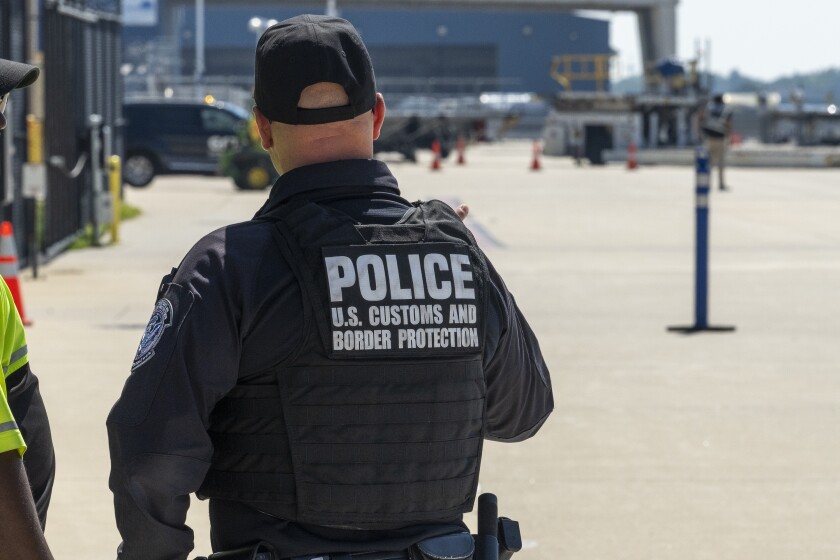President Donald Trump has initiated a plan to deploy hundreds of federal agents to Chicago in a bid to address crime and enforce immigration laws. This operation will commence with a significant presence of federal personnel at Naval Station Great Lakes, located just north of Chicago. The agents, including members of U.S. Customs and Border Protection, will begin their daily operations early in the morning, reportedly leaving the facility by 5 a.m. to minimize disruption to local activities.
Approximately 230 agents are being sent from Los Angeles, following a summer immigration enforcement initiative that led to protests and the eventual mobilization of the National Guard. According to sources familiar with the plans, a number of agents have already arrived at the naval base to undergo training that includes crowd control techniques and the use of flash-bang grenades. This preparation has been ongoing for several months, with an estimated 140 unmarked vehicles also positioned at the base for the operation.
Federal Operations and Local Response
The operation, which is set to begin as early as September 8, 2023, aims to establish a no-fly zone around the area to prevent media coverage from news helicopters and drones. The Trump administration received approval over the weekend to utilize Naval Station Great Lakes for this initiative, which is the largest military installation in Illinois. Local officials were informed that federal agents would remain on site through the end of the month.
During a recent press conference at the White House, Trump confirmed the deployment of federal authorities to Chicago, stating, “We’re going in.” He did not specify the timing of the operation. In contrast, Illinois Governor JB Pritzker criticized the move, characterizing it as a politically motivated attempt to justify unnecessary military presence in the city. Pritzker indicated that federal agents may particularly target Chicago during the upcoming Mexican Independence Day celebrations.
Pritzker expressed concern about the impact of these actions on community events, saying, “It breaks my heart to report that we have been told ICE will try and disrupt community picnics and peaceful parades.” This sentiment was echoed by Chicago Mayor Brandon Johnson and other local leaders, who joined Pritzker in denouncing the operation.
Crime Statistics and Expert Opinions
While Trump has framed the operation as a necessary response to rising gun violence in Chicago, local officials contend that crime rates have significantly decreased. According to a WBEZ analysis, the city is experiencing its lowest number of murders since 1965. Experts who analyze crime trends in Chicago argue that merely deploying federal agents will not effectively address the underlying issues contributing to violence.
Lance Williams, a professor at Northeastern Illinois University, stated that violence in Chicago often stems from interpersonal conflicts rather than organized crime. “Just deploying troops to the area is not going to have an impact on violence being up or down,” Williams noted. He emphasized that the nature of violence in urban environments requires more nuanced approaches than military presence.
As the situation unfolds, the implications for local communities and law enforcement remain uncertain. With federal agents poised to make their presence felt in Chicago, the city faces a potentially contentious period as residents and officials navigate the complexities of crime, immigration, and public safety.
